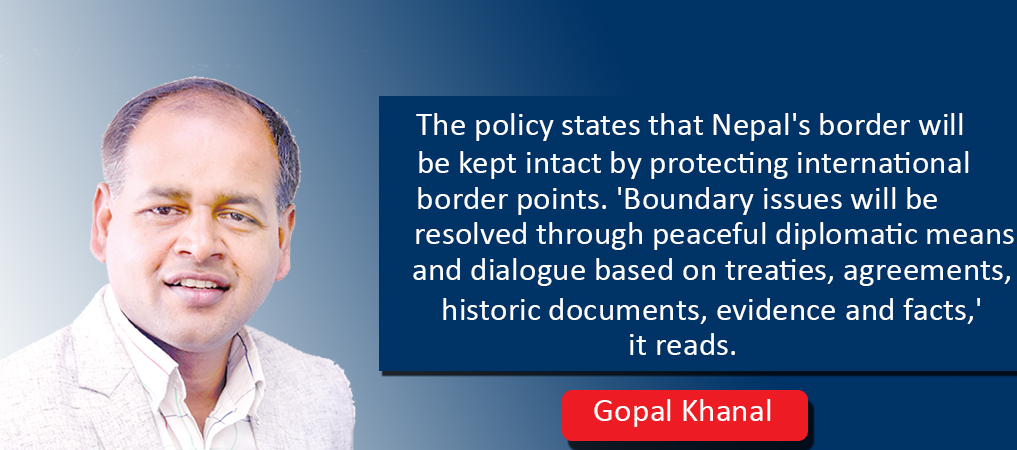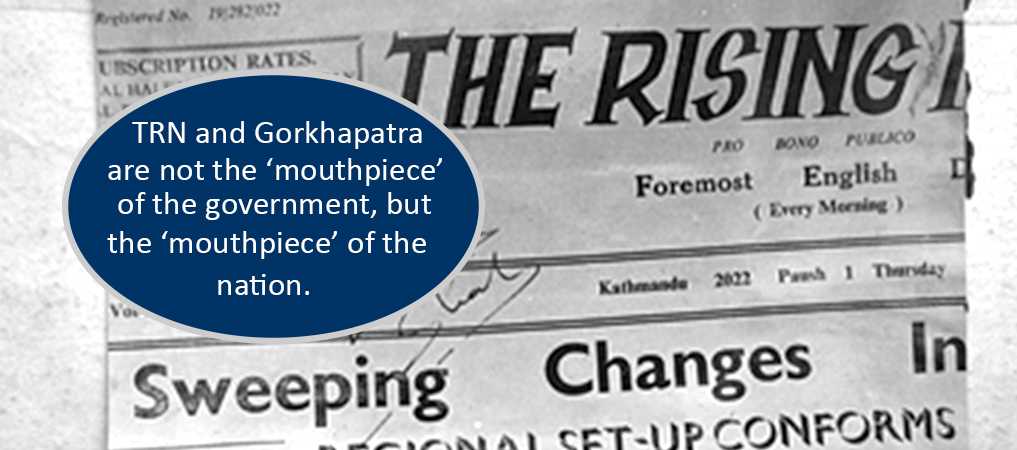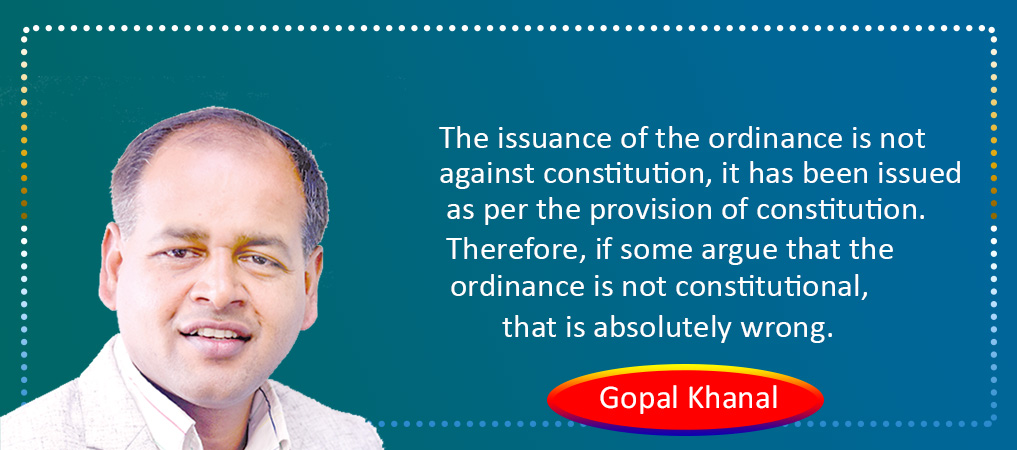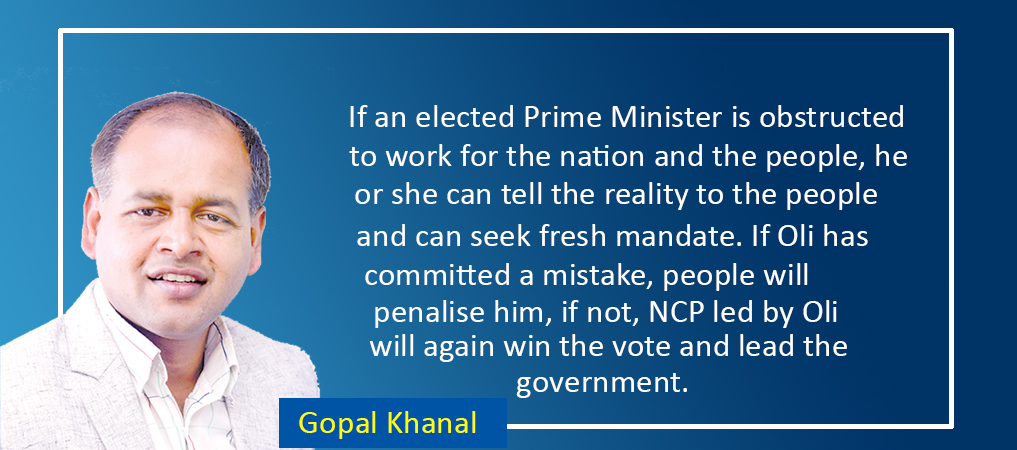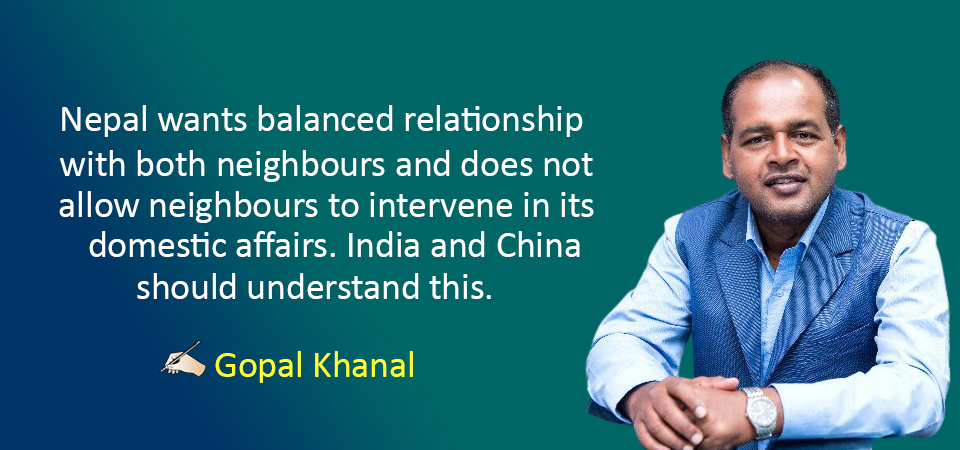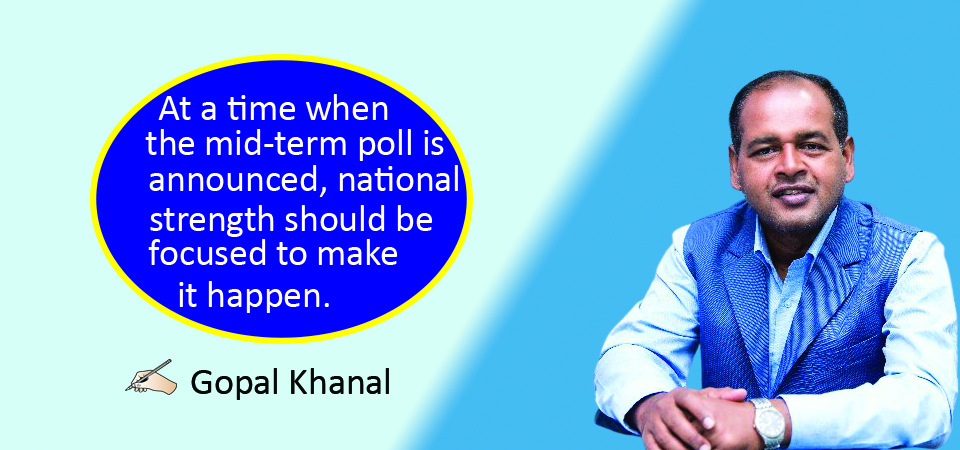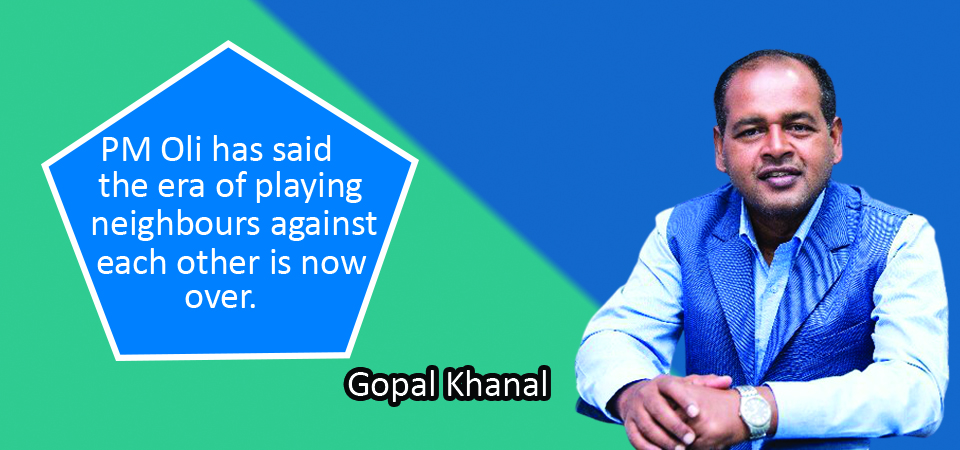Councillor Wei's Strategic Stopover
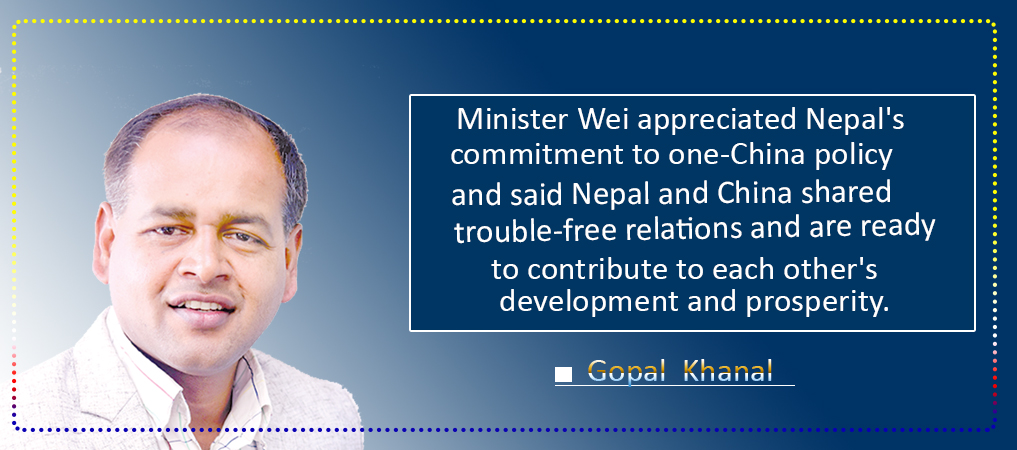
Gopal Khanal
China's State Councillor and Defence Minister General Wei Fenghe arrived in Kathmandu on 29 November and returned the same day after holding high-level meetings with President Bidya Devi Bhandari, Prime Minister KP Sharma Oli and his counterpart Chief of the Army Staff Purna Chandra Thapa. It was short but significant trip of Wei, which reminded us of the visit of former Chinese Premier Wen Jiabao, who had visited Nepal for five hours on 14 Jan 2012.
Wei was the senior-most Chinese leader to visit Nepal after the Chinese President Xi Jinping, who visited the country in October last year. Wei is the second Chinese defence minister to visit Nepal in the last three years after Chang Wanquan's visit to Kathmandu in March 2017.
Upon arrival at the airport, after being received by Home Minister Ram Bahadur Thapa 'Badal', Minister Wei informed that his visit aimed at implementing bilateral agreements and understandings reached between the two countries in the past. Seemingly, his statement was not off the mark if one goes by the media reports.
During Wei's visit, Nepal and China reviewed the whole array of bilateral relations and both insisted on the speedy implementations of the historic agreements. And, it was obvious that his visit was also focused on the military cooperation between the two countries. He held delegation level talks with NA chief Thapa on boosting military cooperation.
Interpretation
Beijing has interpreted that the visit promoted bilateral military cooperation between the two close neighbours, taking existing relations to a new height. Such an assessment is natural in diplomatic realm. Some of Chinese media outlets have said Wei's visit vowed to strengthen its military relationship with Nepal and support its territorial integrity at a time when Nepal is embroiled in border disputes with India. China's position on the protection of Nepali territory and sovereignty has been always constant, projecting itself as the defender. Beijing renews this policy at the crucial juncture and the reassertion hints the urgency.
One major achievement of the visit was to decide the resumption of defence assistance, which had been halted due to COVID-19 pandemic. A statement issued by NA mentioned that the two sides discussed the resumption of training and a student exchange programme as well as defence assistance, all of which have been affected by the global pandemic.
Meanwhile, Prime Minister Oli reiterated Nepal’s consistent commitment to one-China policy during his meeting with Wei. Oli assured that Nepali land would never be allowed to be used against China. PM Oli also said Nepal was committed to implementing the agreement reached during the high level exchanges between the two nations. Prime Minister Oli also said Nepal wants to learn from China's steadfast progress on socio-economic fronts made in such a short span of time. PM Oli has espoused a national motto 'Prosperous Nepal, Happy Nepali' and wants to translate it into action. He has been calling upon neighbours and international community to support his nation-building vision unconditionally.
Minister Wei appreciated Nepal's commitment to one-China policy and said Nepal and China shared trouble-free relations and are ready to contribute to each other's development and prosperity. Indian Prime Minister Narendra Modi has also assured Prime Minister Oli that India would support Nepal to achieve the national goal of development and prosperity.
During 65-years of formal ties, Nepal and China signed landmark accords during the premiership of Oli. But implementation of the deals has not been satisfactory. Beijing has shown its concern about the sluggish implementation of projects under its Belt and Road Initiative (BRI), to which Nepal signed up back in 2016. This is unfortunate that Nepal's groundwork to finalise the BRI projects is quite pathetic and being questioned by Chinese officials.
Undoubtedly, Chinese Defence Minister's visit carries geostrategic value. The message of quickly arranged visit is clear - China is always with Nepal no matter whatever situation arises. India also recently sent top security and bureaucratic chiefs to Nepal as part of its course correction measures, which might be one of the factors prompting Wei to land in Kathmandu. He was tacitly giving message to New Delhi and Washington that China would not stay out of the developments occurring in its periphery.
Under Xi's leadership, peripheral diplomacy is still in China's first priority. It is obvious that the US remains Beijing's top priority, but developing states are assuming a larger role in China's thinking in both political and economic affairs.
Beijing foreign policy experts have said that maintaining that China should make plans to move westwards and establish a new international geostrategic pillar. It can be a logical approach, but peripheral peace and friendship is prerequisite for power to be recognised. Beijing's officials have sensed this changing dynamics of foreign policy.
It is said the more China marches westwards, the global order shifts towards right direction creating a balancing world politics. President Donald Trump's aggressive policy towards China drew critical comments even from moderate Western powers. The trade war launched against China was more directed and aimed for electoral goal.
Geopolitical message
Whether President-elect Joe Biden will continue President Trump’s policy towards China or will shift it is being observed keenly. Many American analysts have claimed that there won't be fundamental change in policy towards China and the Biden presidency will be a period of continuing uncertainty on the US-China front. But they have shared a view that Biden probably cannot exercise political flexibility, but there can be a significant departure in tone, style and process.
In a nutshell, Chinese Defence Minister's visit to Nepal is primarily focused on enhancing bilateral cooperation with Nepal but at the same time, it also sends geopolitical message to China’s immediate and distant rivals.
(Khanal is consulting editor at Gorkhapatra Corporation. khanalbro@gmail.com)
Recent News

Do not make expressions casting dout on election: EC
14 Apr, 2022
CM Bhatta says may New Year 2079 BS inspire positive thinking
14 Apr, 2022
Three new cases, 44 recoveries in 24 hours
14 Apr, 2022
689 climbers of 84 teams so far acquire permits for climbing various peaks this spring season
14 Apr, 2022
How the rising cost of living crisis is impacting Nepal
14 Apr, 2022
US military confirms an interstellar meteor collided with Earth
14 Apr, 2022
Valneva Covid vaccine approved for use in UK
14 Apr, 2022
Chair Prachanda highlights need of unity among Maoist, Communist forces
14 Apr, 2022
Ranbir Kapoor and Alia Bhatt: Bollywood toasts star couple on wedding
14 Apr, 2022
President Bhandari confers decorations (Photo Feature)
14 Apr, 2022




